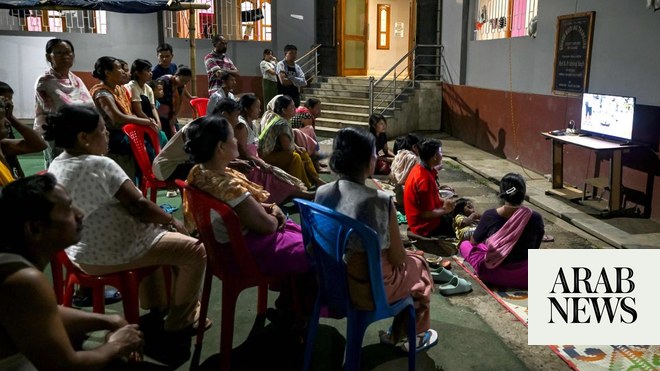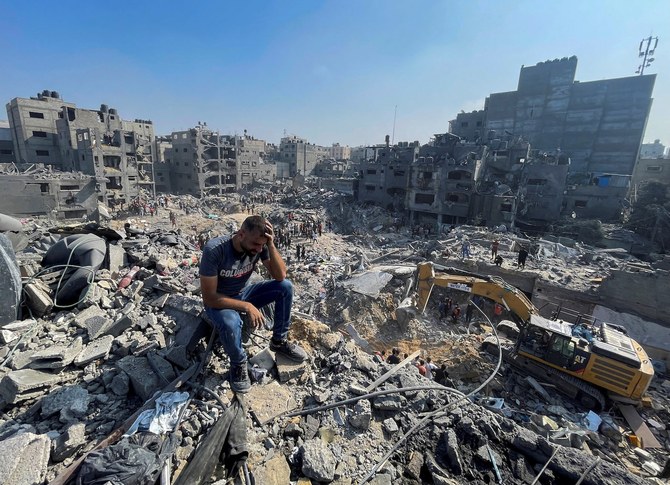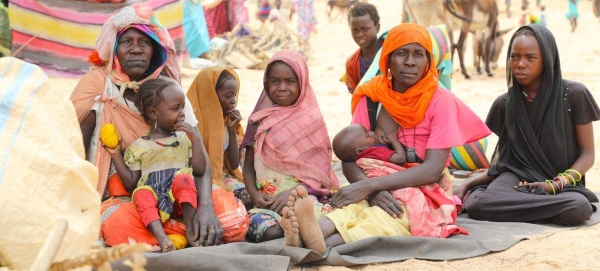
India moved this week, unilaterally, to change the status of Kashmir and potentially opened a Pandora’s box of troubles.
The Kashmir conflict has already been one of the bloodiest and most intractable for 70 years and now it could erupt in flames once more.
The international community has a responsibility to get involved to help the parties deal with this new crisis and address the underlying wider conflict.
First, a presidential order issued on Monday scrapped Article 370 of the Indian constitution. The article, in place since 1949, gives special status to Jammu and Kashmir, the part of Kashmir that India controls. The new order could be contested in courts, but that could take a long time, during which the government could introduce further fundamental changes in Kashmir and inflame an already combustible situation.
Second, a bill to change the status of Jammu and Kashmir from a “state” with full autonomy to a “union territory” directly ruled from New Delhi was approved by the upper house of India’s Parliament. The bill also seeks to carve out the region of Ladakh into a separate union territory. The bill now needs to be passed by the lower house of Parliament. It also needs to be accepted by the president of India.
Article 370 of India’s constitution was an important compromise in 1949 to reassure the majority Muslim population of the state of Jammu and Kashmir, which was given special status to have its own constitution, flag and autonomy over all matters other than foreign affairs and defense.
The new moves are sure also to alarm India’s minorities that the national constitution does not provide adequate protection for them, if the ruling party could change it at will.
Constitutionally, changes such as these require approval of the state’s local legislature, but the nationalist Bharatiya Janata Party ensured that the state of Jammu and Kashmir does not have one.
Revocation of Kashmir’s special status was part of the party’s platform in recent elections. Once elected, it created a legal vacuum in Jammu and Kashmir to pave the way for the takeover.
In June, the party pulled out of a coalition government with the Jammu and Kashmir Peoples Democratic Party, and the state was put under the rule of the governor, in effect handing rule directly to the central government. The vacuum allowed the central government to move ahead with scrapping Article 370 without consulting Kashmiris.
Anticipating trouble, prominent Kashmiri politicians have been reportedly detained, including former chief ministers Omar Abdullah and Mehbooba Mufti together with some community leaders. But, considering what happened in the past, their detention may not contain violence. According to CNN reports, the central government has deployed tens of thousands of additional troops into the state. It has put Jammu and Kashmir in lockdown, banned public meetings, and imposed a wide communications blackout, preventing access to internet and phone services.
Pakistan has also expressed outrage at India’s unilateral moves, which could spark yet another bloody confrontation between the two countries. In March, the world averted an all-out war over Kashmir between India and Pakistan, which were on a collision course with air raids and artillery duels.
Kashmir has been fought over and partitioned for more than 70 years between India and Pakistan, and between India and China. India controls about 43 percent of the land mass of Kashmir, Pakistan around 37 percent, and China 20 percent. The three countries have important historical links with the Kashmir region, but those links are not always clear and have certainly been contested.
Accession of Jammu and Kashmir to India was conditional on a plebiscite that never took place. Its legal status, as governed by Article 370, is different from other Indian states.
The new moves are sure also to alarm India’s minorities that the national constitution does not provide adequate protection for them, if the ruling party could change it at will.
Abdel Aziz Aluwaisheg
In the past, India’s wise leaders acknowledged that there was a need to ascertain the wishes of the people of Kashmir regarding their affiliation with India. Prime Minister Jawaharlal Nehru, for example, made several statements on the need for the plebiscite, which India promised the UN to hold, saying that “only the people of Kashmir can decide the future of Kashmir. The people of Kashmir are sovereign.”
Kashmir’s partition has led to instability and widespread human rights violations by all sides. According to human rights organizations, security forces have committed serious abuses and acts of terror against the civilian populations, including extrajudicial killing, rape, torture and enforced disappearances. The militants have also committed gruesome crimes.
Fear and despair have pushed many families to flee and get torn apart by the conflict, either because they lost loved ones, were split between different borders, or had relatives imprisoned for political activity. The vicious cycle of violence and revenge has retarded Kashmir’s economic, political and social development.
India’s move to scrap Jammu and Kashmir’s status and put it under direct rule would likely make matters worse for Kashmiri civilians. Militant groups are likely to contest these moves, as would India’s neighbors. A full-scale war of unlimited proportions could not be far away, considering the huge military capabilities of the countries involved. Regionally and beyond, the conflict could have tremendous spillover effects.
Considering the potential local, regional and international negative effects of India’s unilateral moves, the UN should move to contain those effects. In addition, the UN should revisit the underlying conflict, perhaps by referring it to the International Court of Justice, which has enough expertise and tools to resolve it once and for all.
It could start by ascertaining the wishes of the people of Kashmir, as Nehru suggested in 1947, and the countries involved. The outcome could be either independence, or a de jure partition with clear and recognized borders, instead of the de facto unstable partition that Kashmir has.












